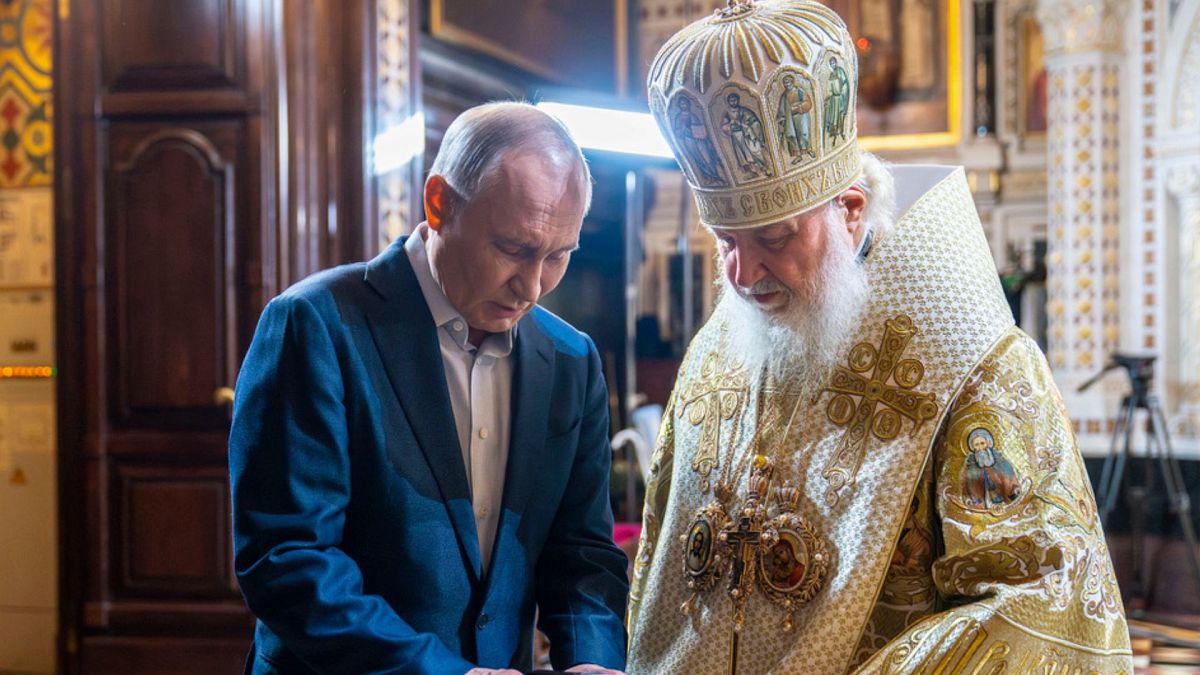Russia’s invasion, which began in February 2022, has also been a source of religious controversy within the Eastern Orthodox Church and has driven a split among believers in both Russia and Ukraine.
Vladimir Putin met the head of the Russian Orthodox Church, Patriarch Kirill, on Tuesday with gifts he asked the Patriarch to bless for troops fighting in Ukraine.
The meeting at a Christmas service at the Church of St. George the Victorious on Poklonnaya Hill in Moscow came as the church and its followers celebrated Christmas.
Putin extended Christmas greetings to the highest dignitary, and asked Kirill to consecrate crosses and icons he prepared as gifts for commanders of his troops fighting in Ukraine.
He told Patriarch Kirill, “I think they’ll be especially pleased to receive these symbols of faith consecrated by you on Christmas day.”
Russians and many other Orthodox believers generally celebrate Christmas on 7 January, while most Western countries observe it on 25 December.
Patriarch Kirill said a prayer and sprinkled holy water on the gift boxes as Putin stood by and watched. The Patriarch who oversees the Russian Orthodox Church has depicted Moscow’s invasion of Ukraine as part of a spiritual struggle against the West and gay pride parades.
A council he presided over declared Russia’s invasion a “holy war” in defence of the region’s “single spiritual space”, with unfounded claims that Russia was protecting the world from “globalism and the victory of the West that has fallen into Satanism.”
In Ukraine, Orthodox Christianity, the largest religious denomination, is split between churches that had been loyal to the Moscow Patriarchate and those under a separate ecclesiastical and canonical body.
Russia’s full-scale invasion, which began in February 2022, has also been a source of religious controversy within the Eastern Orthodox Church and has driven divisions among believers in both Russia and Ukraine, particularly between the similarly named yet distinct Orthodox Church of Ukraine and the Ukrainian Orthodox Church of the Moscow Patriarchate (UOCMP).
Last year, Kyiv controversially enacted a bill that banned the activities of the UOCMP due to what it called links to the Kremlin and its role as a supporter.
The law sparked reactions among the Christian faithful, including the leader of the Catholic Church, Pope Francis, who raised concerns that this could set a dangerous precedent for all religious freedoms, saying the situation was not “black and white.”
Authorities in Kyiv insisted the restrictions will not be imposed on Moscow’s patriarchate worshippers in Ukraine, in particular those willing to officially and openly condemn Moscow’s invasion and the Kremlin regime’s policies.
The Ukrainian Orthodox Church was established in 1990 as a self-governing church under the jurisdiction of the Russian Orthodox Church (ROC).
Unlike the Catholic faith, which is headed by the Vatican, Eastern Orthodox Christians are permitted to request independent jurisdiction from other Orthodox churches.
Video editor • Jerry Fisayo-Bambi

